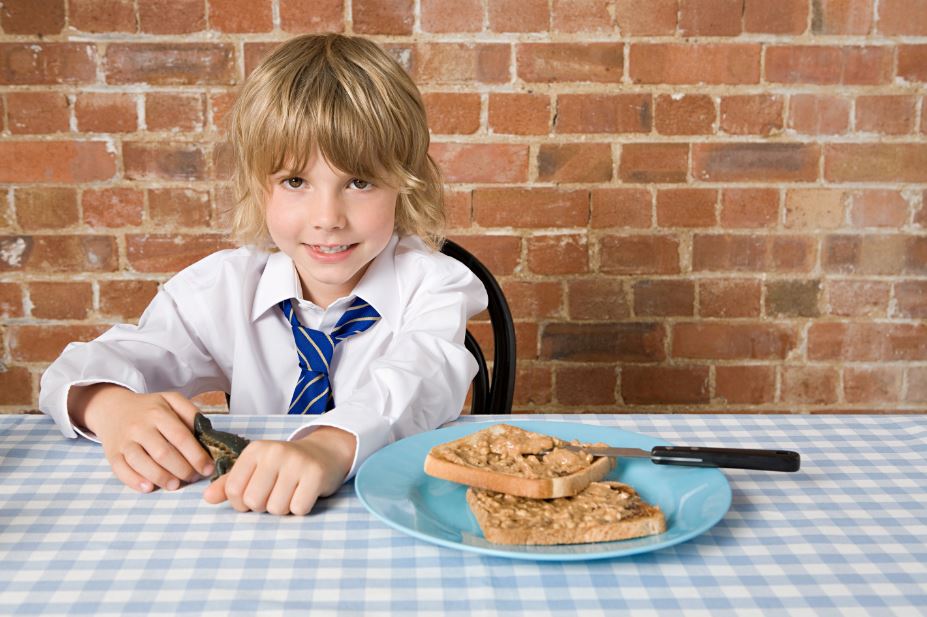Most households will throw out a big quantity of out of date food each month. With the rising cost of living, throwing away perfectly edible food is like throwing away money! Obviously food hygiene should be kept strict, and nobody is suggesting we should eat mouldy food to avoid wasting it, but with careful planning and consideration, these tips should help you enjoy more food and waste less.
These handy tips will help to save you some money on your food bill every month, possibly make you a little more creative with your food, and definitely make you clean up your kitchen habits.
1. Plan your meals
When shopping for groceries, its best to go with a rough idea of what you are going to make that week and an idea of what you already have in your fridge. This way, you won’t buy unnecessary things that are going to go to waste and you won’t buy things that you already have in. Lists are key to a healthy food bill!
2. The freezer is your friend
If you buy a lot of meat, fish or perishable items, and you know you won’t get through it all before its sell by date, put it in the freezer. This means you can keep it for longer, so it won’t waste. This is also a good thing to do if you make too much of a meal. For example, if you make a chilli con carne for two but there is enough to feed a small army, section it up into Tupperware boxes and freeze them. This avoids waste and it is good for nights when you don’t want to cook, as it is already there.
3. Get creative
If you make a roast chicken for Sunday lunch and not all of it gets used, leftover chicken can be the basis of your meal for the next day. For example, left over chicken or turkey is lovely in pasta dishes, and is beautiful when put with chorizo and chopped tomatoes as a filling for lasagne. This works with all meat joints, and allows you to spread the cost, as meat joints can be costly. Plus, making meals out of leftover meat is a lot more interesting than sandwiched. BBC food has an amazing range of recipes for all meats, so get creative in the kitchen.
4. Stock your shelves
If you are the person that regularly shops for your family, you know what they get through and what they don’t. If your family get through a lot of pasta, it’s a good idea to always have pasta in. This allows you to make meals that everyone will love at the drop of a hat without having to run out to buy ingredients. Long life food, such as tins, pasta and rice, keep for a long time so is unlikely to go to waste. It is also a good idea to write your shopping list as you use things, to be sure that you don’t run out of a family favourite.
5. Portion control
If you are making enough food for two people, make enough for two people. We have already covered that if you make too much, most things are freezable, but if you make too much all the time, you will have a very full freezer of very old meals (and things do go off in the freezer – eventually.)
6. Never shop hungry
So, you’ve been at work all day and you skipped lunch. You drop into the supermarket to do the weekly shop and come out with about half the things you needed, a multi-pack of monster munch, two mars bars and a twix. We’ve all been there, but the moral of the story is not to shop hungry, because you get distracted by the tasty things rather than what your store cupboards actually need. This is not only a waste of money but it’s also a waste of time, as you’ll only have to go back at another point to do it again, not to mention how unhealthy it is!
7. Control your carbs
Most people base their meals around rice, pasta or potatoes, whi ch are very filling. Not controlling your portion sizes of carbs means a lot of your leftovers end up being thrown away! Getting to know how much to make for each person avoids waste as you don’t have to throw excess away.
ch are very filling. Not controlling your portion sizes of carbs means a lot of your leftovers end up being thrown away! Getting to know how much to make for each person avoids waste as you don’t have to throw excess away.
8. Store your food properly!
Poorly stored food goes off quicker! This is not good for your pocket or your family, as dodgy but “in date” food can cause illness as quick (if not quicker) than out of date food that has been stored properly. Meat and fish should always be kept chilled or frozen, as should dairy products and berries. Bananas should be kept away from your fruit bowl and any veg as they will ripen fruit & veg faster than normal and it will go bad quicker.
9. Don’t be fooled by clever marketing tricks
Make sure you look around during your shopping trip, as higher priced items will always be put higher on the shelf – “eye level is buy level”. Give yourself time to have a good look at the shelves rather than just buying the first one you see. Also, weigh up multi pack buys, as often they involve too much food that will go bad before you get a chance to eat it, and a lot of the time the saving is not as great as the supermarkets make out.
buying the first one you see. Also, weigh up multi pack buys, as often they involve too much food that will go bad before you get a chance to eat it, and a lot of the time the saving is not as great as the supermarkets make out.
Some supermarkets now have a ‘buy one, get one free later’ deal, where you can purchase the item on offer, and claim your free second item the next time you shop! This is a great way to reduce waste whilst still taking advantage on buy one get one free offers.
10. Make it from scratch
Ready meals are great for convenience, but they are not always that economical. If there are more than two people to feed, making meals from scratch is healthier and more economical. It takes a little more effort, but ultimately you will save money and get that warm, fuzzy feeling when everybody loves your meal.







